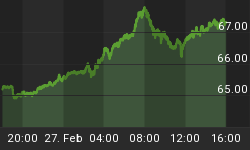Ah, the Italians. They're good for at least one entry in the "Why We're Ungovernable" series each year, and their latest is the best yet:
Drug trafficking, prostitution revenue set to boost Italy's GDP result
Italy has announced it will start including estimated revenues from prostitution and illegal drug sales in official gross domestic product (GDP) figures.
The country's National Institute of Statistics says starting next year, the GDP result will also include estimates on the value of the black market in cigarettes and alcohol.
The move has been driven by new European Union rules requiring nations to include all activities that produce income in their national accounts, regardless of their legality.
The institute says the procedure would be it will be "very difficult for the obvious reason that these illegal activities are not reported".
The Bank of Italy in 2012 estimated the value of the criminal economy at 10.9 per cent of GDP.
Theoretically, that could mean Italy's GDP result with the new calculation will come in far higher than the government's 1.3 per cent growth estimate.
Eurostat earlier estimated the average GDP increase for EU nations due to the new calculation to be at 2.4 per cent.
The highest rises were estimated for Finland and Sweden at 4 to 5 per cent, followed by Austria, Britain and the Netherlands at 3 to 4 per cent.
The increase for Italy would be around 1 to 2 per cent.
The "grey economy" of businesses that do not pay taxes is already calculated in Italy's GDP and was estimated to be worth between 16.3 per cent and 17.5 per cent of the economy in 2008 - the last year for which the calculation was made.
As the above article notes, the concept of GDP relies on economic players reporting their activity. Criminal activities, in contrast, are by definition not reported. So how do state statisticians come up with a number? The same way the US gets its inflation/GDP/unemployment stats, by running assumptions through a bunch of other assumptions and then making some favorable adjustments to what comes out. In other words, since official numbers are largely guesswork (or conscious manipulation), the idea of adding made-up numbers for drugs and prostitution to GDP is really not that big a stretch.
It might, however, make for some amusing reports down the road: "Italy's prostitution sector exceeded Wall Street expectations in the Third Quarter while cocaine sales and car thefts were off slightly, noted Goldman Sachs analyst Vito Soprano..." You'd think the investment banks would have a pretty good feel for black-market trends, since they're such active consumers of hookers and drugs.
And this isn't just the Italians being Italian. As the above article notes, the new rules apply to all of Europe. One odd stat: "The highest [GDP] rises were estimated for Finland and Sweden at 4 to 5 per cent, followed by Austria, Britain and the Netherlands at 3 to 4 per cent. The increase for Italy would be around 1 to 2 per cent." Apparently, crime is a much bigger part of the Scandinavian economies. At the risk of being racist (or reverse-racist or whatever), that's a bit counter-intuitive.
In any event, the implications are consistent with the theme of this series: When a country borrows too much, life gets more complicated, voters get angry and leaders find it harder to get reelected. And ideas that once seemed crazy begin to look like the least problematic of the remaining options. Adding crime to GDP is about as close to perfect an example as we're likely to find.
The other "Why We're Ungovernable" posts are here















